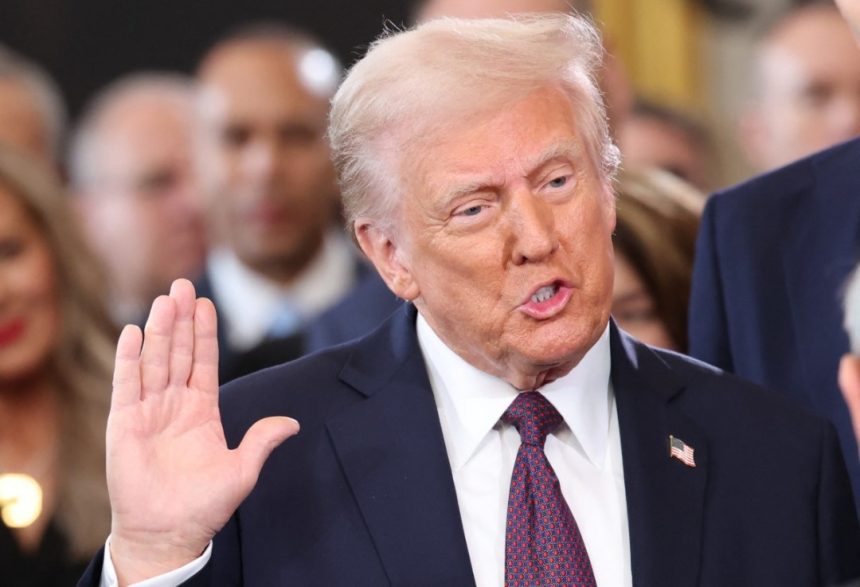In a dramatic and contentious step, former President Donald Trump signed an executive order aimed at ending birthright citizenship, a right enshrined in the U.S. Constitution and upheld by the Supreme Court for over a century.
The announcement was part of a series of sweeping actions designed to reshape federal immigration and border policies, setting the stage for significant legal battles.
Trump justified the decision by framing it as a matter of national security, declaring that his primary responsibility as commander-in-chief was to protect the country from perceived threats and invasions. Birthright citizenship, which has long been interpreted to grant citizenship to anyone born on American soil regardless of their parents’ immigration status, is rooted in the 14th Amendment. The amendment states that “all persons born or naturalized in the United States, and subject to the jurisdiction thereof, are citizens of the United States.”
The executive order directs federal agencies to stop issuing citizenship documents, including passports and certificates, to children born in the U.S. under specific circumstances. This applies to those whose mothers are in the country illegally, temporary visa holders, or whose fathers are neither citizens nor legal permanent residents. Trump stated that the policy would not be retroactive and set a 30-day enforcement deadline.

The order was immediately met with backlash. Advocacy groups, led by the American Civil Liberties Union, filed a lawsuit in federal court, arguing that the move was unconstitutional and an overreach of presidential power. Critics view the action as a deliberate challenge to the 14th Amendment and a clear departure from longstanding interpretations of citizenship laws.
The executive order also included measures targeting migrants at the southern border, granting officials extraordinary powers to suspend asylum laws and block physical entry into the U.S. Trump described the migrant situation as an “invasion,” claiming it threatened national security and public health. The order authorized federal officials to “repel, repatriate, or remove” migrants, effectively halting adherence to existing asylum laws until Trump determined the situation at the border was resolved.

The move sparked intense debate, with supporters arguing it was necessary to curb illegal immigration and critics decrying it as unconstitutional and inhumane. Legal experts widely expect the matter to escalate to the Supreme Court, setting up a high-stakes battle over the interpretation of one of America’s most foundational constitutional principles.



